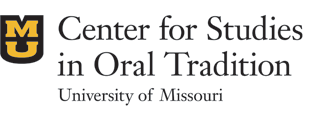First Word: What is Oral Poetry?
As explained on pages 30-34 of HROP, even so basic a concept as a poetic line varies dramatically from one oral poetry to another. Relatively seldom, in fact, does it turn out to mirror the syllabic, foot-structured increment with which most modern Western readers are familiar. As illustration of that principle of diversity, I provide here a short reading from Beowulf, in the original Old English language. As you will hear, Old English poetic lines depend not on syllables and feet but on stresses and alliteration. Here is the passage in question, lines 51-54 of the epic poem Beowulf from the Anglo-Saxon oral tradition:
to say in truth, hall-counselors,
heroes under the heavens, who received that burden.
Then in the strongholds was Beowulf of the Scyldings,
beloved nation-king, for a long time.
secgan to sothe, seleraedende
haeleth under heofenum, hwa thaem hlaeste onfeng.
Tha waes on burgum Beowulf Scyldinga,
leof leodcyning longe thrage.
Listen to how these four lines sounded.


